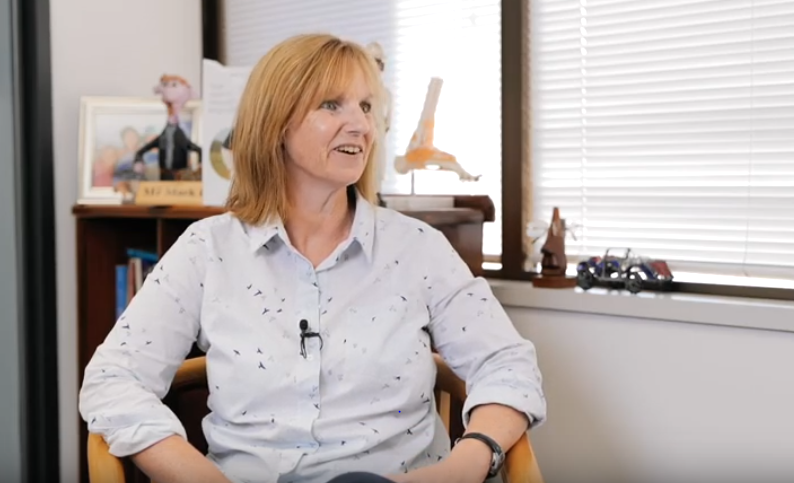Restrictions on gyms, fitness classes and leisure centres are lifting, and most people are eagerly returning to their pre-COVID exercise routines. After such a prolonged break, jumping straight back into exercise can lead to injuries and overuse conditions, particularly in the older adult population. This blog outlines some basic rules to help you return to exercise safely.
Read MoreDr Nikki Cummings, principal dietician from Optimal Intake, spoke with Dr Mark Hurworth about her approach to good nutrition - improving our relationship with food and shifting the focus to what we put into our bodies rather than cutting foods out. Nikki advocates that ditching the scales completely might be the way to go. “It is very hard to improve someone’s relationship with food when their only measure is weight loss; all they will end up doing is restricting their intake”.
Read MoreIn the 2014-2015 Australian Health Survey, 55.5% of adults between 18 and 64 participated in the recommended amount of weekly exercise. Which means that nearly half of us are not doing enough to get all of the benefits of exercise. The World Health Organisation (WHO) has collated research from around the world to define the recommended minimum guidelines for physical activity in adults from the age of 18.
Read MoreDr Demaio discusses lifestyle factors that are shown to help us ‘Wrinkle Well’ across each decade of our adult lives.
Read MoreA current popular trend in weight loss is the fasting diet, sometimes called an intermittent calorie restriction diet. These diets are often touted as a more successful or less onerous alternative to a conventional weight loss diet based on continuous calorie restriction. So, what does the research tell us? To lose weight and keep it off, are we better off eating less every day? Or trying regular, intermittent calorie restriction (5:2)? Or using severe intermittent calorie restriction (5 days decreased intake:2 days fasting)?
Read MoreKevin, a 35yo from California, found a novel way to motivate himself and his mates to lose weight and keep it off. “I could lie and tell you that my new-found drive to exercise is due to pride or determination. The reality is far more pedestrian (ha ha). Money is on the line.”
Read MoreOur emphasis at Wrinkle Well is the effect of ageing on joints, muscles, bones and tendons. Perhaps ironically, given our name, we have not paid much attention to the biggest organ of all - and the one that visibly reflects the ageing process of the entire body - our skin. However, a recent article by Suvi Mahonen, published in the Australian on 25/5/18 draws some interesting connections between the skin (ageing, identity and skin health) and our focus areas of mental health and physical wellbeing. In the article, dermatologists Adam Sheridan and Michael Freeman, and cosmetic and medical specialists Terrence Scamp, Ehsan Jadoon and Kym Jenkins discuss skin ageing, what it means to us as individuals and what we can do to care for our skin.
Read MoreGolf is a popular sport, as it is accessible to people of almost any age. The popularity of golf in the older population cannot be argued. In contrast to most other sports, we tend to play more golf as we get older. Golf has many potential health benefits for those who play, but to avoid injury you should; play regularly, warm up, work on your technique and add in some strength exercise.
Read MoreCyclists on the road can be the bane of a car driver’s life! And if we ask the cyclists, aggressive car drivers are equally troublesome! One thing is certain: cycling is here to stay. It is an activity with a multitude of health benefits, and is being suggested as the perfect sport for older adults.
Read MoreWe all know how difficult it can be to make the changes to our lifestyle we know we ought to make. We are inspired for a while, but we back-slide. We have a go, but then we get discouraged. This website has some great suggestions of lifestyle changes that could really make a difference to our lives – managing our pain better, eating a healthier diet, looking after our joints and our tendons better, improving our sleep hygiene, quitting smoking, caring for our mental health ... but how can we make changes that actually stick? This exact question has been the subject of plenty of research, which we have read through and summarised here.
Read MoreA Narrative of the Musculoskeletal Implications of Late Parenthood
The average age women become mothers in Australia (and around the western world) is increasing, and currently stands at 30.3 years old 1. Forty years ago, the average age of new mothers was 25 years old 1. What has driven this change and what does it mean for our physical health?
Read More“This year I am going to lose weight and get into shape!”
Sound familiar? This phrase will carry a strong sense of déjà vu for many of us, especially soon after the start of a New Year. We are all aware of the numerous health benefits of maintaining a healthy weight, but the task itself can be daunting. We are inundated with advertisements, Facebook posts, or magazines suggesting new diets or exercise programs, which they claim will help you lose weight.
Read MoreFor all its hurry-ups and slow-downs, for all of the perceived variability, time marches on for each of us.
Read More












